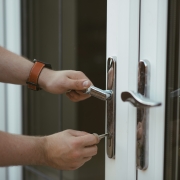Sharing Economy Entrepreneurs Threatened With Jail Time In Miami.
The sharing economy is spontaneous order at its finest. And there is, perhaps, no better example of this than Airbnb. By allowing individuals to earn extra income by renting out their homes, entrepreneurship has been extended to more people than ever before. But sharing economy entrepreneurs should be warned that if the mayor of Miami, Florida get his way, earning extra income through home sharing might soon be grounds for jail time.
Spontaneous Order and the Sharing Economy
The greatest thing about the sharing economy is that it began without any regulatory oversight. In the instance of Airbnb, for example, the founders were simply fed up with the high prices and limited availability of hotels. And instead of waiting on someone else to find a solution or petitioning the government to regulate prices, the Airbnb founders realized they could utilize their own homes to provide options to tourists and travelers alike. It was that simple.
And by recognizing this demand, the home sharing economy made entrepreneurs out of regular, everyday people. So long as you had a spare room or a vacant home, you had the ability to supplement your income. In fact, some Airbnb hosts took this task to heart. Many stocked their fridges with food for guests. Others made sure the interior decor was immaculate and even left artisan soaps for their guest to use. The sharing economy was really inspiring these entrepreneurs to get creative in order to create the best possible experience for guests. There were truly no losers in this arrangement, except for the hotel cartels who have used their power and influence to call in favors from local governments.
Big, overly-regulated cities like Manhattan were some of the first to crack down on home sharing, but others have followed suit. And the next example comes from Miami, Florida.
Miami’s War on the Sharing Economy
Miami Mayor Dan Gelber has asked the city council to consider an ordinance that will make Airbnb hosting a misdemeanor. Currently, Miami residents who are found listing their homes on the site are slapped with a civil fine of $1,000. But by turning this relatively small infraction into a misdemeanor offense, even first time Airbnb users risk facing up to 60 days behind bars—or so they did until the media reported on it.
After a story was published in the New York Times, the mayor’s office changed the language of the ordinance. Now, first-time offenders will be forced to pay a fine of $1,000 while second-time offenders will be slapped with a $3,000 fine. Jail time will not be on the table until the third offense, under the edited version of the proposed ordinance.
This might sound like the mayor has loosened up under pressure from the media, but this is not the case. Each separate day counts as its own offense. So someone caught renting out their home for three days would still be subject to jail time, as that would constitute three separate offenses. In Miami, “legal” short-term rentals have to be for six months or longer, otherwise they fall under the “home sharing” category.
When asked why Gelber has gone to such extreme measures to penalize home sharing entrepreneurs, he responded that this action was necessary because Miami residents “continue to engage in or conduct business without a business tax receipt as required by the city in spite of existing civil penalties.”
And here lies the real reason why local governments have gone to such extreme lengths to ignite a war against the sharing economy: politicians and lawmakers loath what they cannot control. And by its very nature, the sharing economy is peer-to-peer and does not require any government facilitation.
City councils have grown so accustomed to requiring business licenses and permits before someone is able to earn a living that they grow angry when an entrepreneur doesn’t seek their permission before starting a starting a business. And that is precisely why the sharing economy has been so successful.
Individuals are fully capable of deciding who they want to do business with. If I want to rent out someone’s home for a day or two, I should be able to. Likewise, if someone wants to rent their home out to me in exchange for money, this should be up to the two parties involved and no one else. Governments pretend to exist in the name or serving the people, but by restricting someone’s income they are truly damaging an individual’s livelihood, not protecting it.
But what is beautiful about the Miami situation is that it shows that even in the face of oppressive laws, the market cannot be stopped as homeowners continue to list their homes. Last year alone, Miami Beach levied over $6.5 million in fines due to Airbnb violations. But as of today, only $125,000 have actually been paid. At one point, the city even tried to fine “violators” $20,000 for breaking the rules, but this didn’t last long.
One resident is actually taking the city to court claiming that the Florida Constitution prohibits excessive fines. But the outcome has yet to be determined. One thing is for certain, however, no matter how many fines and regulations are instituted, the incentive to earn money overpowers the threat of government force. And Miami Beach residents are proving that the sharing economy market will not be stopped.




